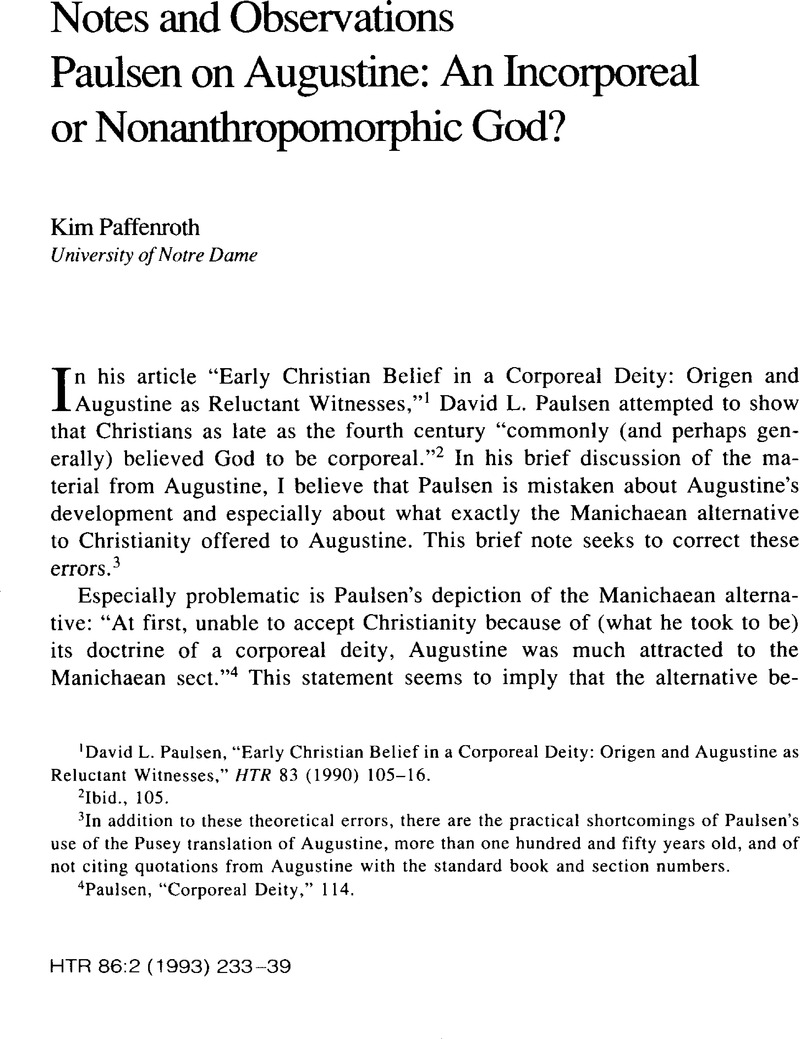Published online by Cambridge University Press: 10 June 2011

1 Paulsen, David L., “Early Christian Belief in a Corporeal Deity: Origen and Augustine as Reluctant Witnesses,” HTR 83 (1990) 105–16CrossRefGoogle Scholar.
2 Ibid., 105.
3 In addition to these theoretical errors, there are the practical shortcomings of Paulsen's use of the Pusey translation of Augustine, more than one hundred and fifty years old, and of not citing quotations from Augustine with the standard book and section numbers.
4 Paulsen, “Corporeal Deity,” 114.
5 Augustine Confessions (trans. Ryan, John K.; Garden City: Doubleday, 1960)Google Scholar 5.20 (pp. 127–28); my emphasis.
6 Ibid., 3.12 (p. 85).
7 Ibid., 5.20 (p. 128).
8 Ibid., 5.19 (p. 127).
9 See Watson, Gerard, Saint Augustine. Soliloquies and Immortality of the Soul (Warminster: Aris & Phillips, 1990) 12Google Scholar: “He [Augustine] had been told as a child that God was a spirit and therefore did not act as we with our bodies act…. Was there any reality other than body of some sort? It seemed the more honest course to go along with the Manichaean view that God i s in some sense a body composed of fine and luminous matter.… It seemed to him more honest to think that ‘anything not a body is nothing whatsoever.’ This was the position which the Stoics and Epicureans had felt themselves forced to take against the ‘spiritualism’ of Plato and Aristotle six hundred years before.”